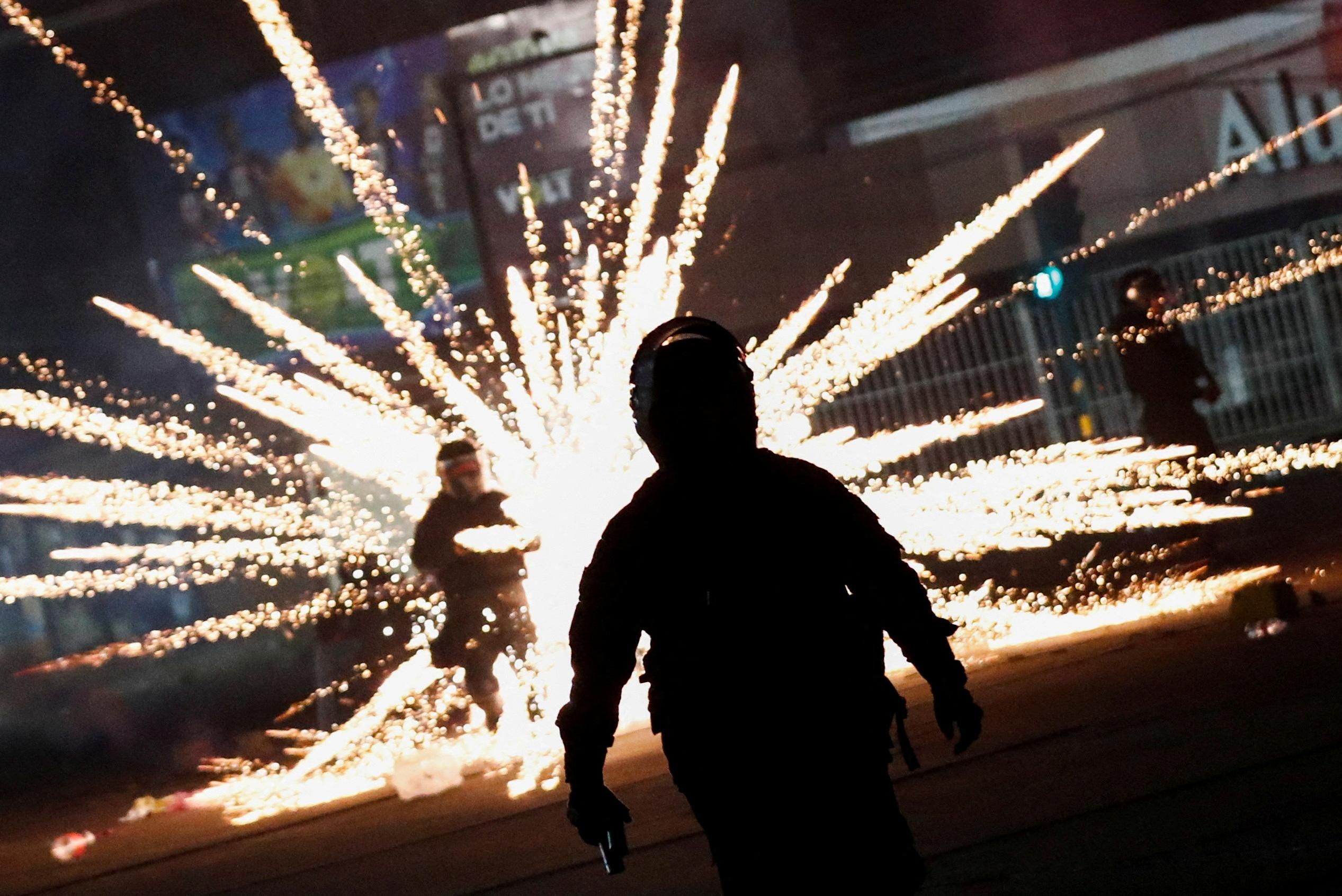Bolivian farmers vs. the government
Political trouble is brewing in Bolivia. For over a week now, farmers have been blocking roads in and out of the agricultural hub of Santa Cruz after the region's governor, right-wing opposition leader Luis Fernando Camacho, was arrested for his alleged involvement in the 2019 ouster of then-leftist President Evo Morales. Camacho lost the 2020 presidential election to Morales’ protégé Luis Arce, and the two have butted heads ever since. But there's more to it: The protesters also want the national government to carry out a long-delayed census that would give Santa Cruz — a relatively affluent region populated mainly by non-Indigenous Bolivians — more tax revenues and seats in Congress. For his part, Arce says that the farmers are a front for business elites who don't want to share the profits of their lucrative beef and soy exports with poorer metal-producing regions, where the president's Indigenous base resides. So, what might happen next? The protesters won't go home until Camacho goes free, and meanwhile, the standoff is costing Bolivia millions of dollars in lost agricultural trade.
Russian retaliation?
It’s still unclear how many Russian soldiers were killed in the early hours of New Year’s Day by a precision-guided, Ukrainian rocket attack on a Russian barracks in eastern Ukraine. The Russians admit to 89 dead. Ukrainians claim the true number was “about 400.” Either way, Ukraine’s successful attack has dealt another heavy blow to the reputation of Russian commanders. Why, many Russian hawks have wondered publicly, were so many soldiers housed together within range of Ukrainian weapons, particularly the US-made HIMARS guided rocket system? Why was so much combustible (and poorly hidden) ammunition stored so close to their location? Pro-war Russians, active on the social media site Telegram and other communications channels, want answers, and even some Kremlin-aligned lawmakers have called for an investigation. A probe is now underway, and Russian officials on Wednesday pointed fingers at the soldiers' use of banned phones that allowed the enemy to locate them. This story highlights yet again the context in which President Vladimir Putin makes decisions. Since the early days of the invasion, anti-war critics have been jailed for up to 15 years for criticizing the Russian military. But there’s no shortage of pro-war voices calling publicly for the heads of Russian top brass they accuse of incompetence. Putin’s willingness to appease the hawks while imprisoning the doves makes clear which side he sees as the greater threat to his future. That’s why we’re watching to see what hyperdestructive act of retaliation against Ukraine Putin will order to impress those who publicly demand accountability and absolute victory.
A bad start for Bibi
Israel’s new government, led by PM Benjamin “Bibi” Netanyahu,
received a string of international scoldings on Tuesday after National Security Minister Itamar Ben-Gvir visited a flashpoint site in Jerusalem that Jews call the Temple Mount and Muslims refer to as Haram al-sharif. The site, the holiest in Judaism and the third holiest in Islam, houses the Al-Aqsa Mosque. Ben-Gvir, a contentious figure who heads the far-right Jewish Power Party, says he wants to change the status quo at the compound – in place since 1967 – that says Jews cannot pray at the site. (Since then, Jordanians have acted as de facto custodians of the site.) A visit to the area by the opposition leader
Ariel Sharon in 2000 was seen as an immediate trigger to the Second Intifada. Netanyahu, for his part, played down Ben-Gvir’s visit and
said he won’t change the religious status quo. Still, Netanyahu is likely seething given that Ben-Gvir’s move undermines his attempt to reassure new allies in the Gulf that he is committed to deepening relations with the Muslim world. Bibi said that a delay to this week's planned trip to the United Arab Emirates has nothing to do with it, but news of the postponement dropped shortly after
Abu Dhabi criticized Israel over Ben-Gvir's visit. Condemnation from the Saudis was also a blow for Netanyahu, who has made no secret of the fact that he wants the normalization of ties with Riyadh to be his next legacy. Netanyahu has pushed back against claims that he has no control over an unruly coalition made up of religious and far-right parties. This episode does not help his cause.
